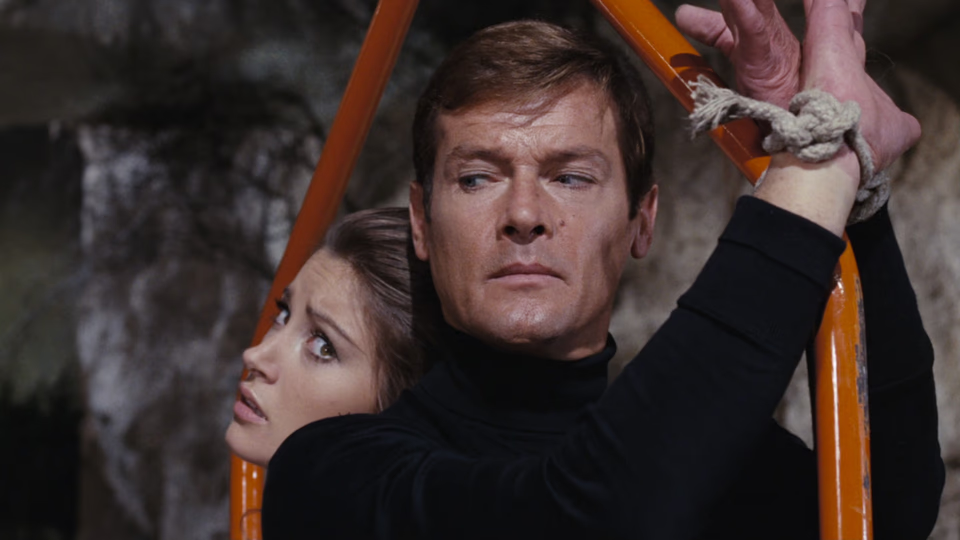Live and Let Die

Roger Moore’s James Bond debut. He investigates a Caribbean dictator, Kananga, played by Yaphet Kotto, who has ties to a Harlem gangster named Mr. Big. Jane Seymour plays Solitaire, Kananga’s tarot card reading psychic.
After reading and watching Casino Royale, I decided to continue the series in publication order.
This will be new for me. I saw A View to a Kill and every subsequent Bond film save No Time to Die during its original theatrical run. But I caught the earlier films in haphazard order. The Connery entries proved easy to arrange in my head. Post Goldfinger, each film sees the camp increase in inverse proportion to Connery’s hair.
But the Moore films always confused me. It wasn’t until I spent two weeks watching all the Bond films in chronological order that I realized the more minimalist For Your Eyes Only came between the kitchen-sink Moonraker and Octopussy.
Live and Let Die proved another odd entry. I knew it was early in his run, but it wasn’t until the chronological rewatch that I realized it was Moore’s first. Like Craig and Brosnan, Moore steps into the role with confidence, his years spent on The Saint television series having prepared him.
His Bond proves lighter, more gentlemen than man’s man, and his one-liners prove droll compared to Connery’s sarcasm. Thus, he’s closer to the Bond of this film’s source novel.
But this proves the extent of this adaptation’s similarities. The film eschews the novel’s pirate treasure angle (smart) and adds the Kananga character (not as smart). The fictitious San Monique replaces Jamaica, and New Orleans replaces Florida. Bond’s casual racism is gone, but so too are the novel’s subtle digs at the plight of black Americans. Instead, the film plays to Blaxploitation tropes, with Mr. Big’s henchmen attacking Bond in a pimpmobile.
Jane Seymore works as Solitaire, but has little to do. Ditto David Hedison as Felix Leiter, who I liked in the role, even if his hair resembles a toupee.
The film jettisons the train journey and underwater infiltration mission that comprise the bulk of the novel’s second and third acts. In their place, we get a pair of chase sequences. In the first, Bond escapes Kananga’s island compound via a double-decker tour bus which he bisects via a low bridge. He and Solitaire then flee to New Orleans, where he’s captured again. Kananga attempts to feed him to some crocodiles in a terrific sequence that may have inspired the Atari game Pitfall, but Bond escapes again, this time via speedboat. This chase proves the film’s centerpiece, proffering some memorable stunt work. It also introduces the racist Sheriff J.W. Pepper, who returns in the next entry, The Man with the Golden Gun.
The finale sees bond infiltrate Kananga’s supervillain compound in San Monique. In a pleasant change, he wields a Colt Magnum hand cannon. I also loved how Kananga provides his compound henchmen matching embroidered polo shirts. After some questionable logic involving Bond’s gadgets, and a fight scene so outrageous even Moore grins during one shot, it’s all over.
This entry hasn’t aged well. Aside from the terrific theme song, nothing resonates. The narrative stakes never engage. Even the speedboat chase feels drawn out. The best I can say is that Kotto delivers the appropriate charisma and personality even though he lacks the physical stature.